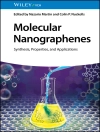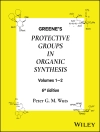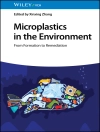Pharmaceutical and fine chemical products are typically synthesised batchwise which is an anomaly since batch processes have a series of practical and economical disadvantages. On the contrary, flow continuous processes present a series of advantages leading to new ways to synthesise chemical products. Flow processes – * enable control reaction parameters more precisely (temperature, residence time, amount of reagents and solvent etc.), leading to better reproducibility, safer and more reliable processes * can be performed more advantageously using immobilized reagents or catalysts * improve the selectivity and productivity of the process and possibly even the stability of the catalyst * offer opportunities for heat exchange and energy conservation as well as an easy separation and recycling of the reactants and products by adequate process design * achieve multistep syntheses by assembling a line of reactors with minimum or no purification in between two reaction steps * can be assured by facile automation * scale-up can be easily conducted by number-up With all the new research activity in manufacturing chemical products, this comprehensive book is very timely, as it summarises the latest trends in organic synthesis. It gives an insight into flow continuous processes, outlining the basic concepts and explaining the terminology of, and systems approach to, process design dealing with both homogeneous and heterogeneous catalysis and mini- or micro-reactors. The book contains case studies, extensive bibliographies and reference lists in each chapter to enable the reader to grasp the contents and to go on to more detailed texts on specific subjects if desired. The book is written by both organic chemists and engineers giving a multidisciplinary vision of the new tools and methodologies in this field. It is essential reading for organic chemists (in industry or academia) working alongside chemical engineers or who want to undertake chemical engineering projects. It will also be of interest for chemical engineers to see how basic engineering concepts are applied in modern organic chemistry.
Tabla de materias
Chapter 1: Engineering Factors for Efficient Flow Processes in Chemical Industries;
Chapter 2: Flow Processes Using Polymer-supported Reagents, Scavengers and Catalysts;
Chapter 3: Zeolites and related Materials for Developing Continuous Flow Systems;
Chapter 4: Microfluidic Devices for Organic Processes;
Chapter 5: Flow Processes in non-Conventional Media;
Sobre el autor
I obtained my Ph.D. degree in organic chemistry and materials science from the University Jaume I, Castellon (Spain). Over the past years as a result of my intensive research activity, I am co-author of 41 publications in per-reviewed International Chemistry Journals of the highest impact (such as Chem. Commun., Org. Lett., Adv. Synth. Catal., J. Org. Chem., Green Chem., Ind. & Eng. Chem. Res, etc…). In at least four of these publications, I appeared as a senior corresponding author, reflecting my research leadership. In addition, I have given 20 communications and 7 lectures in international conferences and Symposia. During my Ph.D. (1996-2001) I worked in the field of asymmetric synthesis and heterogeneous catalysis. I studied the role played by the support over the outcome of heterogeneous catalysed reaction. I have also worked in the synthesis of small-focused library of supported catalysts as a fast and easy tool for the development of more efficient asymmetric catalysts. I also developed methodologies based on FT-Raman as a simple tool for the fast monitoring of reactions on polymer and silica supported reagents and catalysts. After my Ph.D., I moved to work with one of the world leaders in supercritical fluid, Prof. M. Poliakoff, at the Clean Technology Group at Nottingham University. I was awarded with a very competitive individual Marie Curie Fellowship. During my stay in Nottingham, almost 4 years, I gained experience in a wide range of processes in supercritical water (SCW): reactor design, phase behaviour, oxidation reactions, and High Temperature High Pressure Spectroscopy, which were areas of knowledge completely new for me. Besides, I was involved in the training, mentoring and tutoring of 3 Ph D students, 3 research visitors and two project students. I was also directly involved in join collaboration academy-industry (Invista Tech. Ltd.). I wish to point out the excellent productivity of this period generating 12 publications and 3 patens. There












